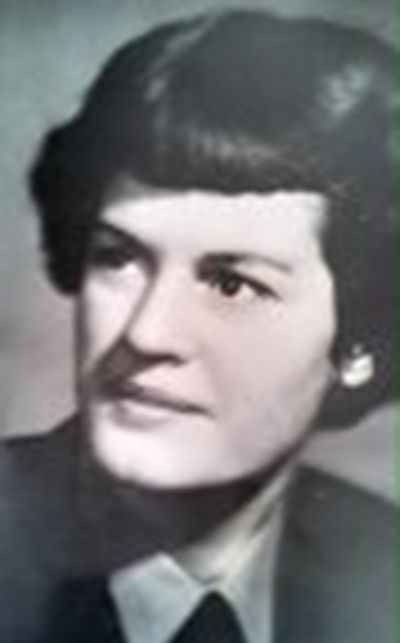Ceremony to inter veterans’ remains

Paul Fuchs has a soft spot in his heart for veterans, especially those like his father who served in the Korean War.
So when he heard the ashes of a Korean War vet from Spokane were sitting in storage, unclaimed by her family, it bothered Fuchs.
“People should not be sitting on a shelf in a crematorium. They should be given the respect they deserve,” he said.
Thanks to Fuchs, Community Cremation, American Legion Post 241 and the state Veterans Affairs Department, Army 1st Lt. Doris Branson will get that respect this week. Her remains will be among more than 50 veterans’ ashes to be interred at the state Veterans Cemetery in Medical Lake Friday afternoon in a special ceremony for the Missing in America Project.
As Fuchs discovered, there are scores – perhaps hundreds – of veterans’ ashes among the thousands of unclaimed remains that are stored in funeral homes and county coroner’s offices around the state.
“It’s sad when any remains are held in storage. But it’s extra sad when it’s a veteran,” said Lori Gregory of Community Cremation in Spokane Valley. “It’s mostly a case that the family just doesn’t want them.”
Fuchs didn’t know Doris Branson very well and had only spoken with her briefly, but he knew she was a veteran of Korea. He knew the man who took care of her in her later years and saw her at the Golden Corral at the restaurant’s Veteran’s Day event.
“She was a very quiet person. She very much kept to herself,” he said. “She didn’t say anything about family.”
He described her as a no-nonsense person who “had a huge heart for helping people.”
Branson lived in a two-bedroom, 1905 Craftsman bungalow on West Broadway Avenue she bought in 1983. She didn’t talk much about her military service, but her discharge records show she was born in Gold Beach, Oregon, in 1927, enlisted in 1945 at age 18, became an officer in 1950 and served in South Korea for two years where she was a records officer. She was discharged in 1953. She apparently never married and had no children, Fuchs said.
She made a few visits to the Spokane Veterans Services office in 2012 when she needed help with utility payments and listed no next of kin. Shortly before she died last November, a guardian ad litem was appointed to handle her affairs.
Branson didn’t show up at last year’s Veterans Day event at the Golden Corral, but Fuchs didn’t know she had died until several months later when he happened to ask her caretaker about her. The caretaker knew Branson had been cremated, but didn’t know what happened to her ashes.
“It gnawed at me for months. I didn’t know where she was,” Fuchs said. He decided to find out, and a search through county records showed she was cremated at Community Cremations. He called and was told the ashes were still there.
Gregory, of Community Cremations, said the company can’t just dispose of remains. Family members are contacted, if they can be found, but they don’t always claim the ashes.
“Sometimes the family doesn’t want the remains,” Gregory said. “It’s a change in society that some people just don’t have that connection. They consider the person gone.”
When no family member will claim a veteran’s remains, Gregory contacts Rudy Lopez of the state Veterans Affairs Department’s Missing in America project. But to be part of that program, Lopez needs proof the deceased was a veteran. The standard proof is a form DD 214, the discharge papers for someone in the armed services. Gregory didn’t have a DD 214 for Branson.
Fuchs happened to mention his concerns about Branson’s remains to veterans at the Vernon Baker American Legion Post 241. About three weeks ago, someone there mentioned the Missing in America project had a ceremony planned for Friday afternoon, which seemed like the perfect solution. The question was, could he find Branson’s discharge papers in time for her remains to be interred with the other veterans?
There he got lucky. Branson’s former caretaker knew she had a copy of her DD 214. He had picked one up for her from the county’s Veterans Services office in 2012. Fuchs was able to find that and get Post 241 and its chaplain, Dave Sutton, involved in transferring Branson’s ashes to Lopez at the cemetery. He also contacted Branson’s sister, who is in her 80s and lives in Michigan, to make sure it was acceptable to her to have her sister interred at the Medical Lake cemetery. It was.
Lopez said the remains that will be interred Friday come from all over the state. He regularly gets calls from funeral homes and county coroners throughout Washington when they discover they have the remains of a veteran whom no one will claim. Lopez has on occasion helped with the research to prove that the deceased was a veteran.
The project is a chance to give veterans the proper honor and respect for serving the country, Lopez said.